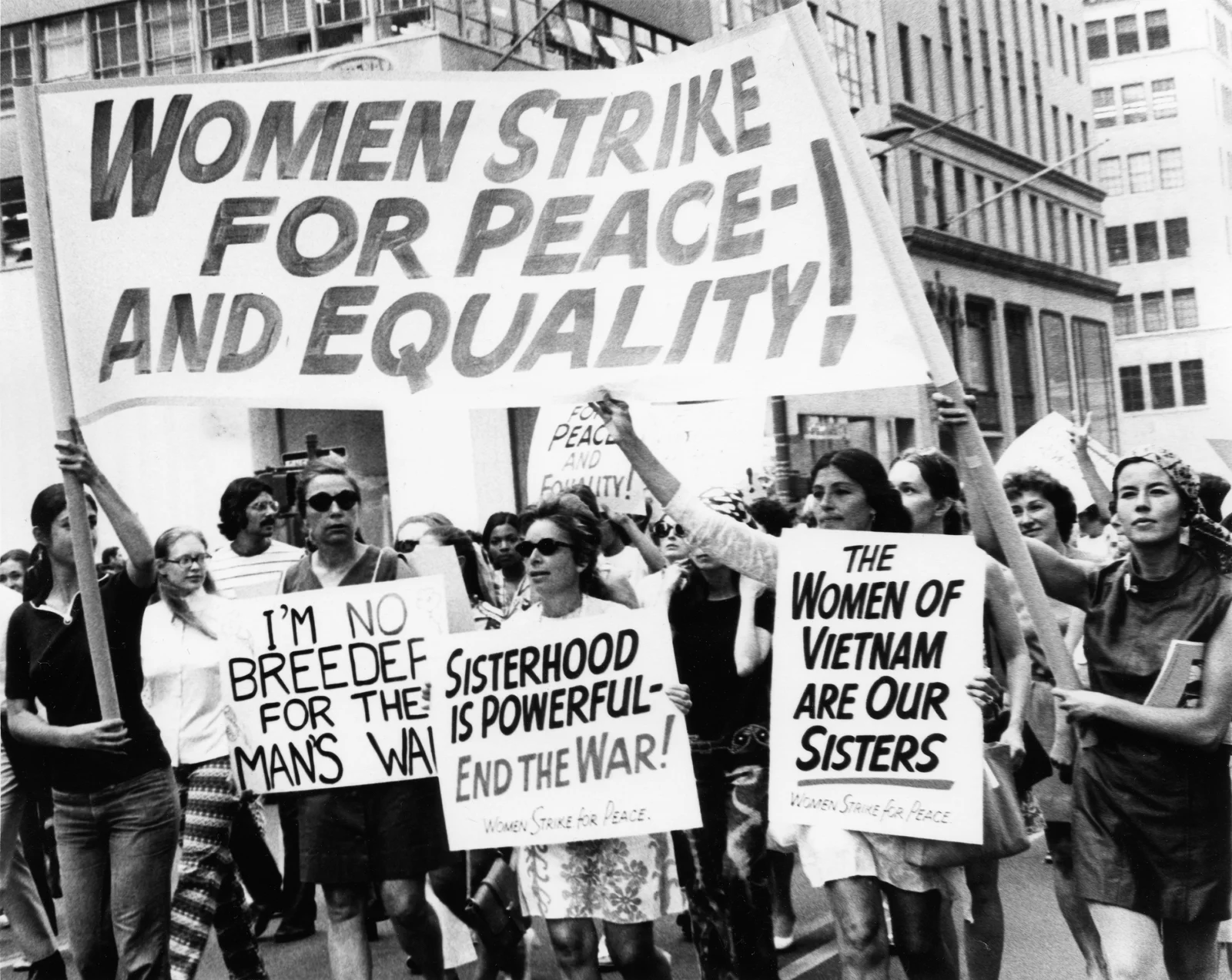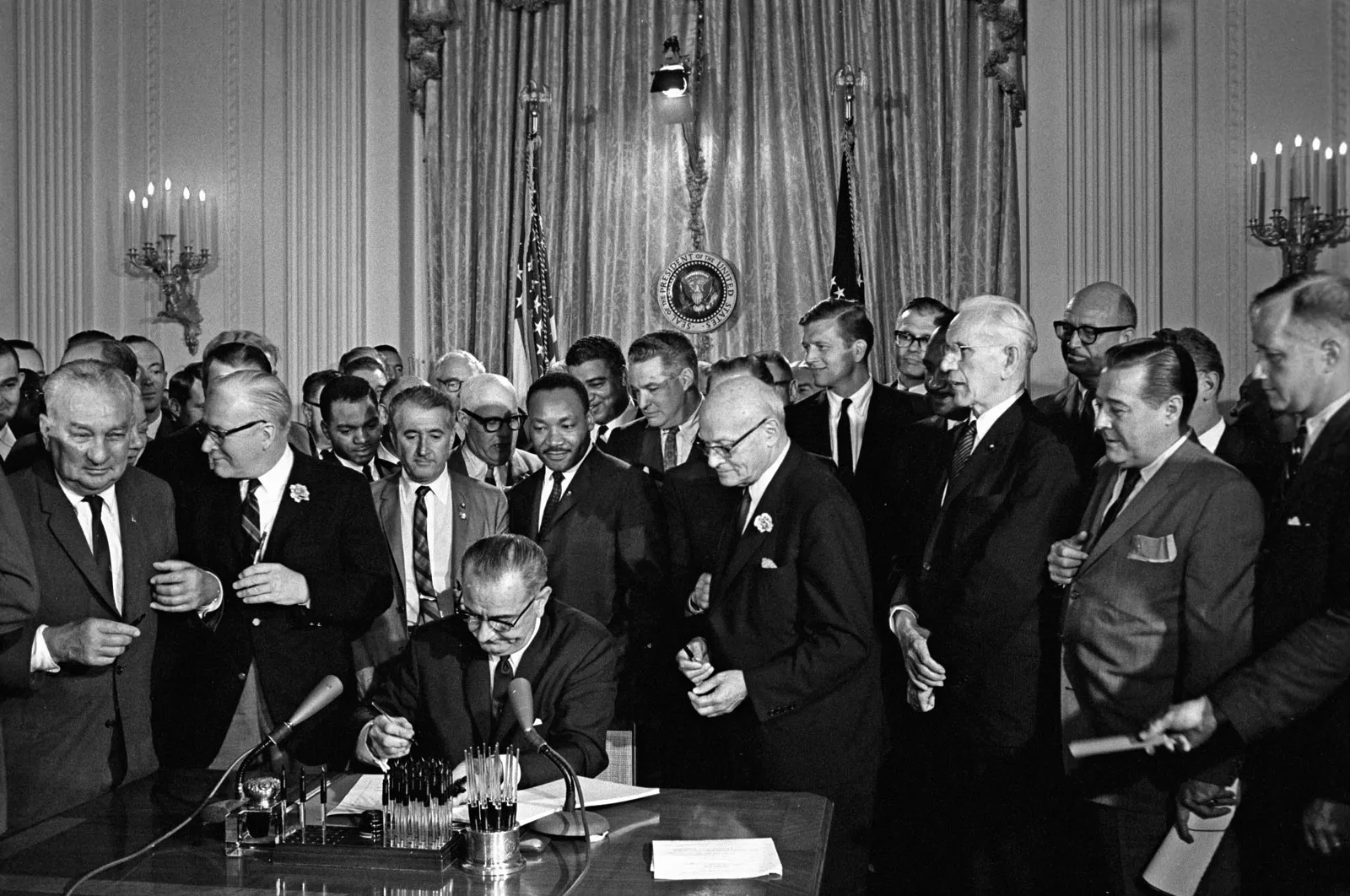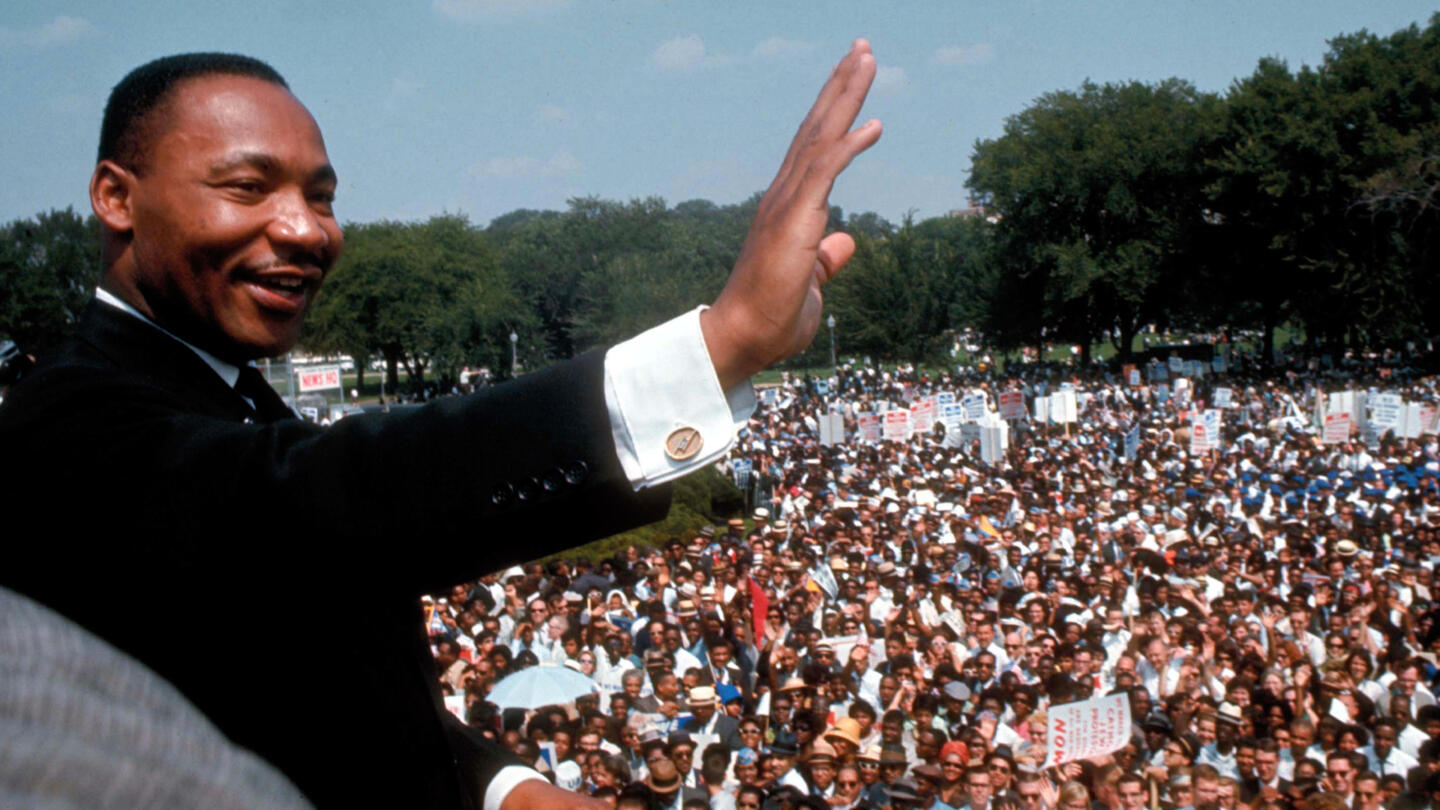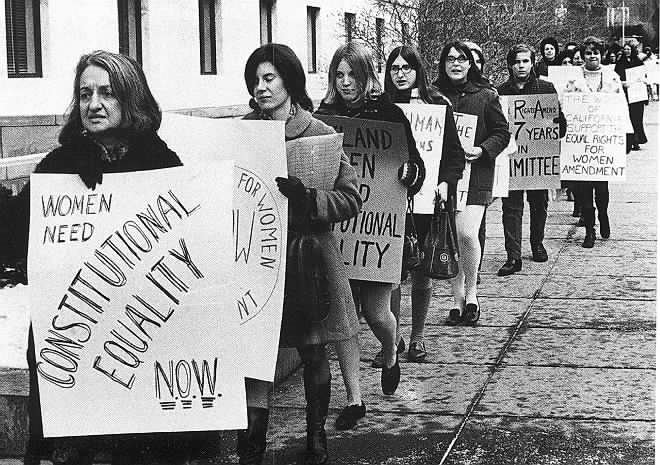1960s: Fight to Further Frontiers
The 1960s was a decade of change characterized by protest against war, racial discrimination, and gender inequity, which laid the groundwork for societal change, including female admission to FFA.
Vietnam

U.S. Marines in Vietnam (The Daily Chronicle, 1973)
In 1965, after the U.S. sent its first wave of combat troops to south Vietnam to fight the communist Viet Cong from the north, widespread protest arose nationwide in opposition to American involvement in another nation’s war.

Peace protest (Time)

(The Daily Chronicle, 1973)
Civil Rights
100 years after slavery ended, racial segregation and violence toward African Americans was still alive and well. However, the 1960s brought progress to the racial frontier through civil rights leaders who led protests. This resulted in sweeping change with passage of the 1964 Civil Rights Act and the 1965 Voting Rights Act, which created momentum for change nationwide.

Signing the Civil Rights Act (Encyclopædia Britannica, 1964)

Martin Luther King Jr. (History.com, 1963)
Feminism

Women led by Betty Friedan (Origins)
The 1960s saw important changes in women’s equality. Betty Friedan’s The Feminine Mystique, published in 1963, challenged traditional notions of women’s roles. Numerous organizations demanded equal rights for women. The Civil Rights Act of 1964 had a major influence on women’s rights, particularly for black women who began pushing the frontiers of gender equality.